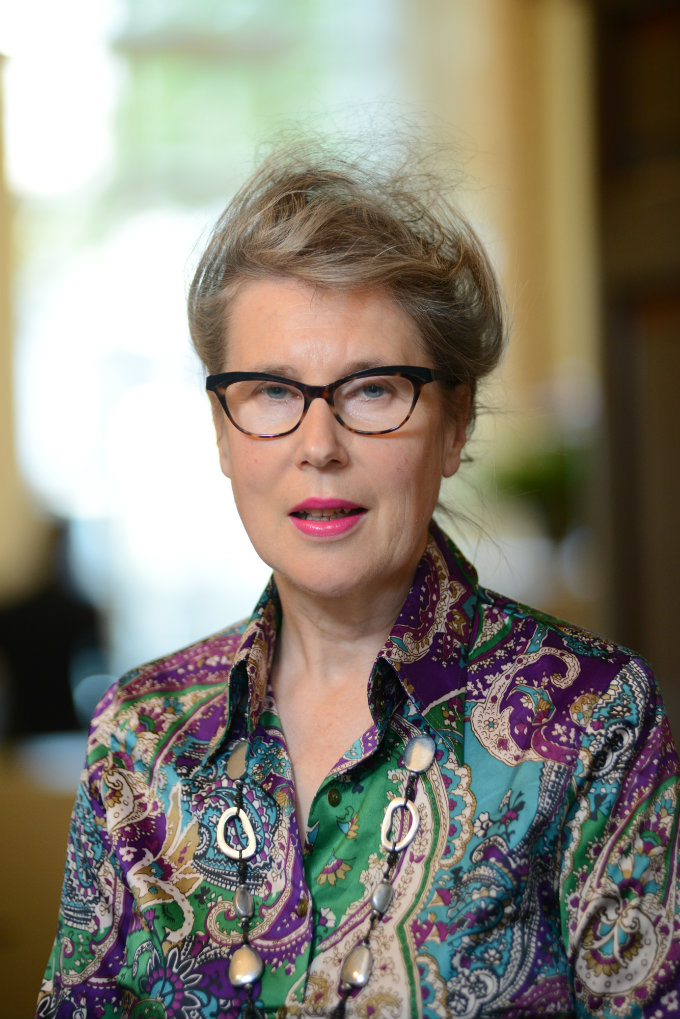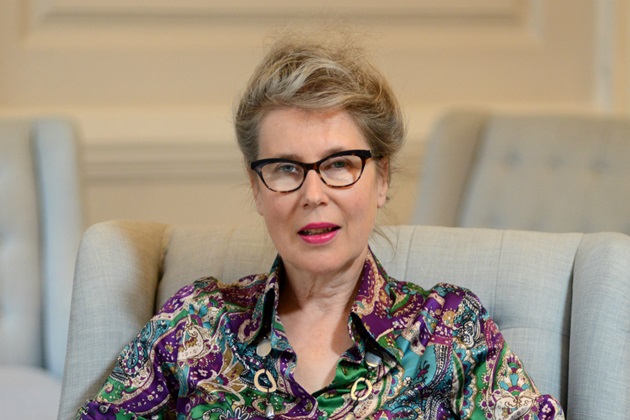Anne Marie Rafferty wants to help introduce safe nurse staffing legislation in England by drawing on her expertise in nursing research. We caught up with her to find out about her passions and priorities as she takes on her new role.
Why did you want to become RCN President?
Good question! I’ve been working as part of a team of researchers for many years gathering evidence of the need for safe nurse staffing legislation. We have two decades worth of data and now is the time to really push for legislative reform. Safe staffing issues are so critical and I think I have something to offer in driving that agenda forward.
As an academic, it can be frustrating to see the slow pace of impact that your research has. In this role, I have an opportunity to influence an historic first in England. So I’m keen to help shape the RCN’s campaign for safe nurse staffing legislation and use my expertise to give it a boost based on the evidence.
How have you been involved in the RCN’s safe staffing work to date?
I was part of the College’s expert reference group, which brought together people who have specialist knowledge of the safe nurse staffing agenda, either from an academic, policy or public relations perspective. It involved members from all four countries of the UK and included directors of nursing who were able to comment on how legislation might work from their point of view.
We discussed what learning there is from the introduction of legislation in Wales and I’m closely monitoring how the Health and Care (Staffing) (Scotland) Bill is progressing.
The group created a set of principles that we would want legislation to deliver. Ensuring there is accountability for safe nurse staffing is absolutely essential but agreeing what a law should look like is tricky. Setting safe nurse to patient ratios would be the easy option but it’s far more complicated than that. We need a legislative package that satisfies the demands for patient safety, worker wellbeing and system resilience. It’s a big ask.
What else do you want to achieve in the role?
I want to make sure the RCN is where it should be in terms of its governance and communications. We won’t be able to accomplish our goals for safe staffing unless the work is well-led and exquisitely communicated. We must be at the top of our game in our decision-making processes so we have the assurance of quality and the confidence to confront any situation. Achieving that requires leadership at every level from members. They must feel engaged and want to mobilise to fight for change.
We need a legislative package that satisfies the demands for patient safety, worker wellbeing and system resilience
What is your vision for nursing?
I want nursing to realise its potential as a social force for good. I believe it can be the biggest engine for social mobility in the country. The problem is that we simply don’t have enough nurses in the system and we have a vacuum of nurses in leadership roles. It’s that lack of support at senior level that limits our ability to ward off major pressures and it’s why things can go seriously wrong.
There must be more nurses in senior positions so that they can be role models for those coming up behind them. Nurses need people to admire and aspire to.
Everybody can move up. I believe it because my own experience tells me it’s possible. I come from a working class background. I’m the daughter of a coalminer. And yet here I am, President of the RCN, Professor at a Russell Group university and an Oxford University graduate.
Nursing gave me a chance and opened those doors, so I want it to be that for other people. We need to build in both directions so we raise the floor and shatter the glass ceiling.
Your role seems quite removed from hands-on nursing. Do you still consider yourself a nurse?
Absolutely. 100%. I am a nurse. Let’s not get boxed in. We must challenge the stereotype of what nurses do and what they can be. Yes, nurses are at the coalface delivering direct patient care in a whole range of settings. And they’re doing an amazing job. But nurses are also teachers, researchers, policy-formers, decision-makers and leaders.
I always wanted to be a first-class clinician, but I wouldn’t say I’m a naturally practical person. I know I can make a greater contribution to the profession and have an impact on more people’s lives by doing what I’m best at, which is building the evidence for policy change so that all nurses are better supported and have legislation behind them to ensure the delivery of safe patient care.
What are you looking forward to in the future?
I want nurses to feel that they’re powerbrokers in their own right, that they have the ability to influence change. I’m looking forward to inspiring members to get involved in policy design as well as delivery and for nursing to be seen, increasingly, as the “go to” profession.
I want to give the professional side of the RCN a big push and to raise its profile. We are experts and we have a huge amount to offer the public, politicians and policy-makers. I want us to be standing shoulder to shoulder with the brightest and the best, on an equal footing.
I’m serious about taking the RCN in a different direction and it being a contender in health policy design and delivery. I want to make sure the public see the many facets, the skill and exquisite expertise that goes into crafting high quality nursing care.
About Anne Marie

Anne Marie grew up in Kirkcaldy in Fife, Scotland. She was inspired to enter nursing after listening to the stories of her mother who cared for prisoners of war during World War Two. She did her nursing degree at Edinburgh University before working in vascular surgery at the Royal Infirmary in Edinburgh. It wasn’t long before academia was calling her once more, and she took on a clinical academic role, the first of its kind at the time, in Nottingham.
Anne Marie later left nursing for a while to study modern history at Oxford University and became the first nurse to get a doctorate from there. She went on to be a nursing lecturer, before receiving a Harkness Fellowship to be mentored in the United States by pioneering nurse researcher Linda Aiken.
A role as Director at the Centre for Policy in Nursing Research at the London School of Hygiene and Tropical Medicine followed before Anne Marie was headhunted to become the Dean of the Florence Nightingale Faculty of Nursing and Midwifery at King’s College London.
Since 2011 she has been Professor of Nursing Policy at King’s College.
Find out more
The RCN’s campaign for safe nurse staffing legislation in England is being designed in partnership with members. A workshop will be held next month to start the process of jointly deciding what a new law should seek to deliver. It will see members shaping plans for the campaign and sharing ideas of how to increase support for legislation. Visit the campaign page to find out more about RCN work on safe staffing in all four UK countries.








